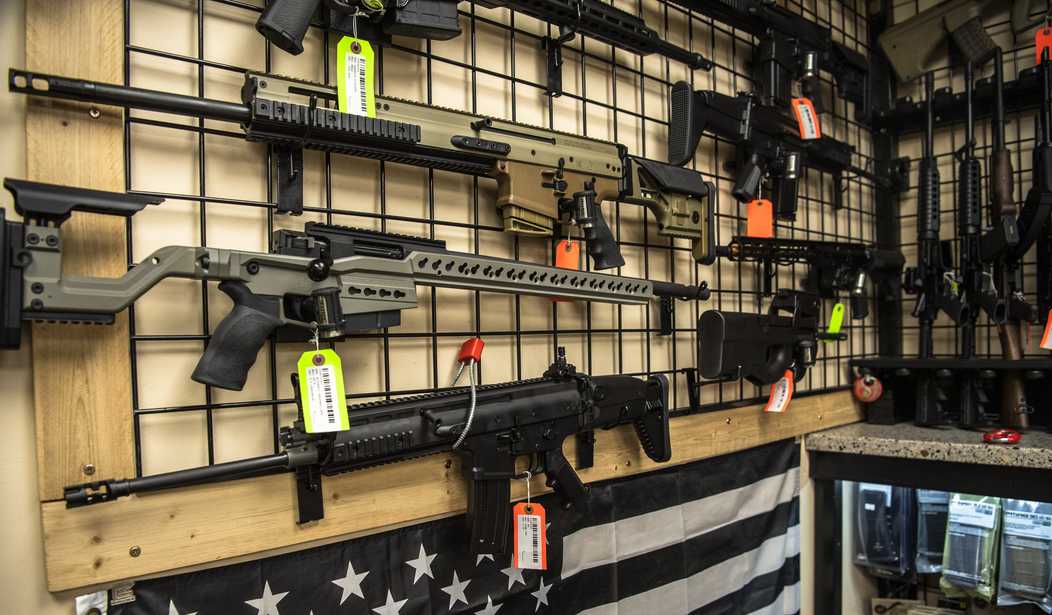Pennsylvania's firearm preemption law was recently upheld in a unanimous decision by the state Supreme Court, which ruled 6-0 against the city of Philadelphia in its latest challenge to the decades-old law.
But even if statewide preemption itself is on firm legal footing, questions remain about the scope of the longstanding law. It's clear that the preemption language prevents counties, cities, and townships from adopting their own gun control ordinances regarding the "the lawful ownership, possession, transfer or transportation of firearms, ammunition or ammunition components", but does that mean that those political subdivisions can't regulate where those lawful transfers take place?
That's the issue at the heart of another legal challege; this one filed not by anti-gun officials in Philadelphia, but by a federally licensed firearms dealer operating in the Philly suburb of Lower Merion Township. In 2023, Grant Schmidt and his company Shot Tec drew the ire of some neighbors and residents who were incensed at the gun store's location. As the Philadelphia Inquirer reports:
Amelia Powell, who started the petition, had long held concerns about gun violence and was frustrated to see a business pop up in a busy corridor near schools.
“People were picking up the guns in the store and then walking out into the community with these firearms and these are people that have been newly trained on how to use them,” she said.
In an effort to respond without violating Pennsylvania’s preemption law, Lower Merion officials imposed a set of zoning rules limiting where retailers who hold a federal firearms license could be located in the township and enacted a series of requirements for shops to be approved in permitted areas.
Under the zoning requirements, gun shops were forbidden from opening their doors in "residential or walkable downtown areas" and were forced to locate in a limited number of less desirable commercial spaces and industrial use zones.
“No one really thought about how an FFL would work in the context of a walkable downtown until one showed up,” said Todd Sinai, the Democratic chair of the Lower Merion Board of Commissioners.
Joe Oxman, a community member who drafted the ordinance initially, said he was motivated by other communities in Pennsylvania which, according to the ATF, had already limited where guns could be sold. According to the ATF, several Pennsylvania municipalities restrict gun sales in residential areas.
... “A substantial number of our residents are in favor of restricting the pervasiveness of guns and firearms,” said Lower Merion Commissioner Josh Grimes, a Democrat. “We can’t do that meaningfully because of federal and state laws but our solicitor advised us that we can, again, use zoning laws to regulate where they can be to the most appropriate parts of the township.”
Did the solicitor offer township officials bad advice? Schmidt ended up suing Lower Merion over its zoning rules, and attorney Joshua Prince has argued that these zoning restrictions run afoul of Pennsylvania's preemption law and its provision blocking political subdivisions from regulating, in any way, the transfer of firearms.
Pennsylvania’s Commonwealth Court will now decide whether the zoning rules themselves were appropriate. Both parties argued the case in front of the court last year. The court could now issue its ruling anytime in the coming weeks or months.
Lower Merion officials have argued that the law is not regulating guns but rather the use of the land in the township.
“This is not a gun-control law. This is simply about zoning and organizing the municipality,” Lower Merion attorney Matthew Hovey said during oral arguments in December.
Except that township officials were pretty clear about what led to the zoningi change, and it has everything to do with gun control. A bunch of NIMBY's didn't like the idea of a gun shop in the downtown business district and wanted to push it out to the margins of the township, while also prohibiting every resident from operating a home-based firearms business. They're not regulating home-based nail salons or barring bookstores from opening downtown. As Prince correctly argued before the Commonwealth Court, gun sellers are being singled out.
Firearms sellers, he argues, can be subject to the same zoning and safety regulations as other commercial businesses but they cannot be singled out.
“They can’t touch the issue at all,” Prince argued.
Gun control activists complained to the Inquirer that if Schmidt is successful in challenging Lower Merion's zoning restrictions the decision "would essentially leave gun sellers with no rules as gun reform proposals have repeatedly stalled in Harrisburg." That is, of course, absolutely absurd. FFL's have to comply with a host of federal rules and regulations, and if the voters of Pennsylvania choose to replace the GOP majority with anti-gun Democrats a steady stream of gun control legislation is likely to be approved (and challenged in court).
Second Amendment advocates, meanwhile, worry that if the court upholds Lower Merion's zoning restrictions we'll soon see a large number of Democrat strongholds adopt similar measures to limit the locations of gun shops; consigning them to the less desirable parts of towns and making their sale and possession politically and culturally taboo. We could even see some deep-blue communities push the envelope and try to ban gun stores outright. Again, that would be subject to an immediate court challenge, but a bad decision by the Commonwealth Court will open the door for a new line of attack on our Second Amendment rights, and one that the anti-gunners will use to their advantage going forward.









